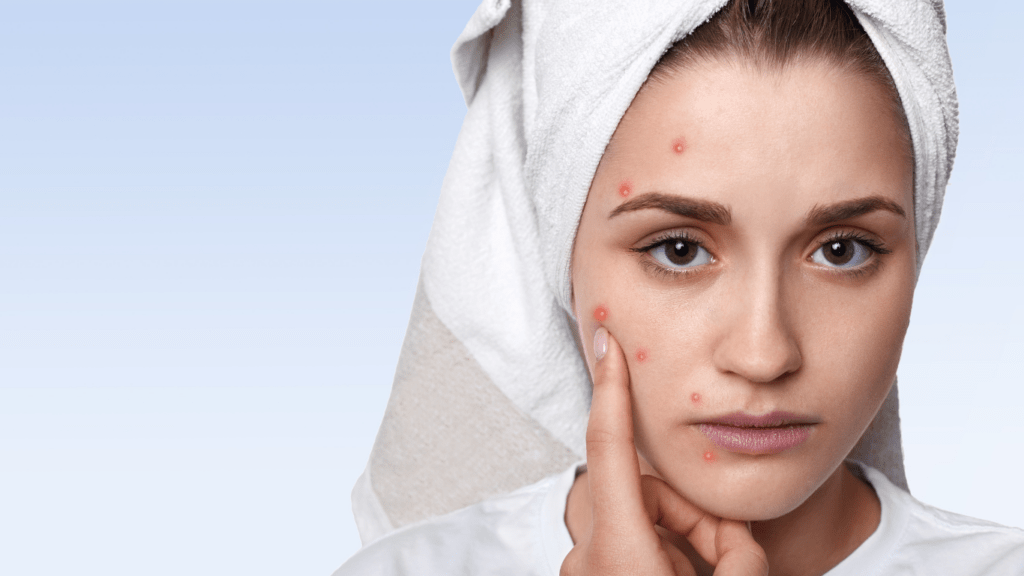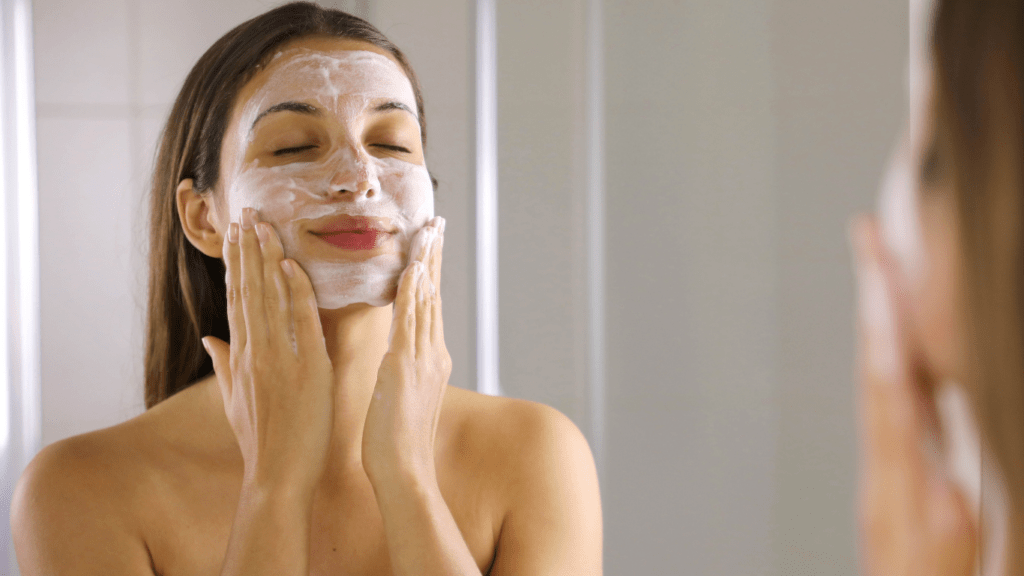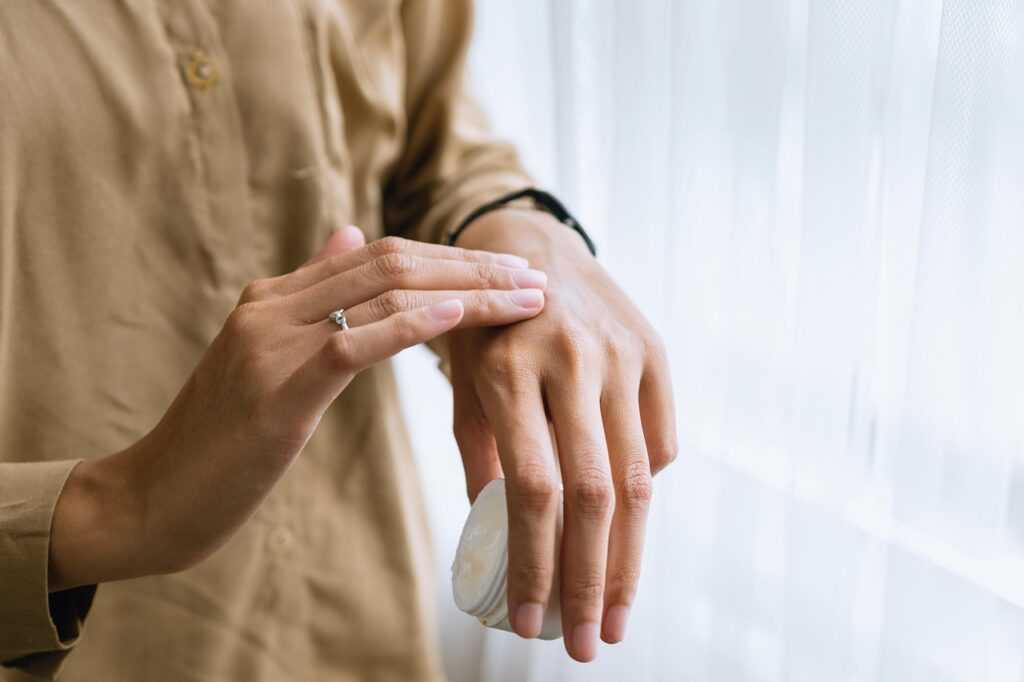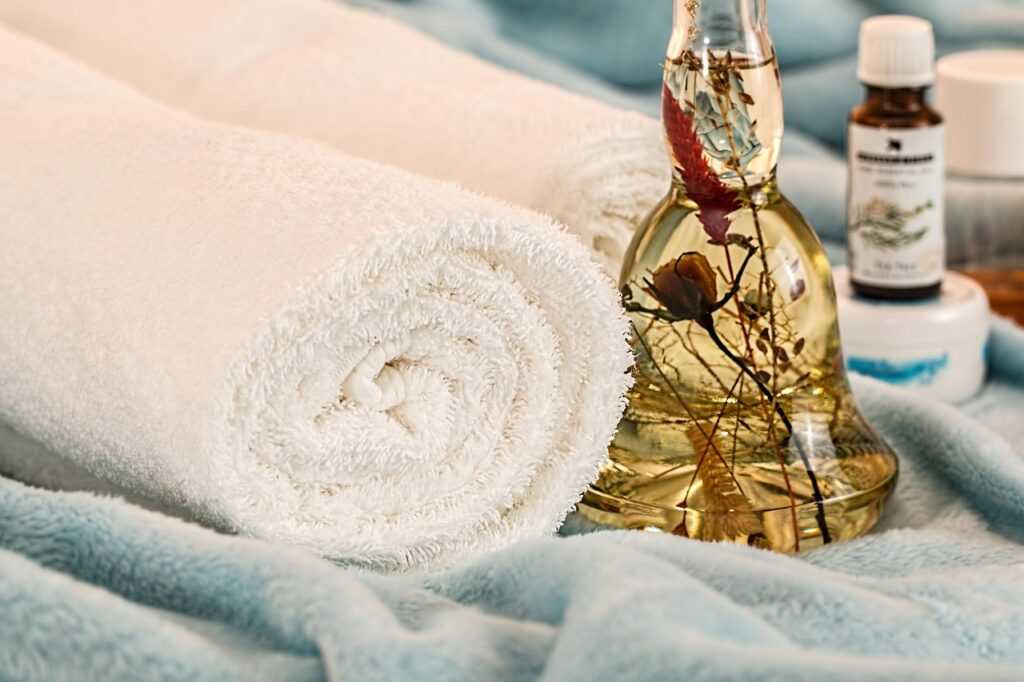Understanding Acne-Prone Skin
Acne-prone skin tends to have unique characteristics that distinguish it from other skin types. One primary feature is an overproduction of sebum, which clogs pores and creates an environment for bacteria to thrive. This combination often leads to pimples, blackheads, and whiteheads. I noticed this pattern early on in my skincare journey.
Sensitive skin usually accompanies acne-prone skin, making it susceptible to irritation and inflammation. Factors like:
- hormones
- diet
- stress levels
play a significant role in aggravating these conditions. I found that some products labeled for sensitive skin didn’t always work well for my acne-prone skin.
Understanding these nuances helps in selecting the right products that won’t worsen the condition. For instance, I discovered that oil-free moisturizers and non-comedogenic products work best for my skin.
Key Ingredients to Look For
When managing acne-prone skin, knowing which ingredients work best is essential. The right products can make a noticeable difference in skin health and appearance.
Salicylic Acid
Salicylic acid, a beta-hydroxy acid (BHA), penetrates deep into pores. It exfoliates inside the pore lining, which helps unclog pores and reduces blackheads. This ingredient tackles inflammation and redness, providing relief for swollen pimples. Use products containing 0.5% to 2% salicylic acid, found in face washes and spot treatments.
Benzoyl Peroxide
Benzoyl peroxide, an antibacterial agent, kills the bacteria causing acne. This ingredient reduces excess oil and helps remove dead skin cells, preventing clogged pores. Formulations range between 2.5% and 10%, with lower concentrations being as effective as higher ones but less irritating. For me, a 2.5% gel works best for spot treatment.
Retinoids
Retinoids, derivatives of vitamin A, promote cell turnover. By encouraging the shedding of dead skin cells, they prevent pore blockages. Retinoids also improve skin texture and tone. Over-the-counter options like adapalene (0.1%) are milder, while prescription options offer stronger formulations. Start with a low concentration to minimize irritation.
Tea Tree Oil
Tea tree oil, a natural antiseptic, has anti-inflammatory properties. It fights acne-causing bacteria and soothes the skin. Dilute tea tree oil with a carrier oil (like jojoba or almond oil) to minimize skin irritation. Look for products with 5% tea tree oil for effective results. My experience shows it’s particularly useful in calming inflamed breakouts.
Ingredients to Avoid
Selecting the right ingredients is vital for maintaining clear, healthy skin. It’s equally important to know which ingredients to avoid, especially for acne-prone skin.
Alcohol
Using alcohol in skincare can be highly detrimental for acne-prone skin. Alcohol-based products strip the skin of natural oils, leading to overproduction of sebum, which clogs pores. Typical examples include denatured alcohol, isopropyl alcohol, and ethanol. These ingredients cause dryness and irritation, exacerbating acne.
Fragrance
Fragrance in skincare products often causes irritation and allergic reactions. Synthetic fragrances are common culprits, but even natural essential oils can be problematic. Fragrance ingredients can increase skin sensitivity and trigger breakouts. Products listed as “unscented” might still contain masking fragrances, so reading labels meticulously is essential.
High-Dose Vitamin C
High-dose Vitamin C, particularly in concentrations above 20%, can irritate acne-prone skin. Though Vitamin C has antioxidant benefits, overuse can result in redness, peeling, and discomfort. It’s advisable to start with lower concentrations, like 10% or less, to gauge skin tolerance. While beneficial in moderation, excess Vitamin C can disrupt the skin barrier and worsen acne.
By avoiding these ingredients, you can minimize irritation and help maintain clearer, healthier skin.
Recommended Skincare Routine

Establishing a reliable skincare routine is essential for managing acne-prone skin. Here’s a detailed guide to help you keep your skin clear and healthy.
- Cleansing
Cleansing is crucial for acne-prone skin. I use a gentle, sulfate-free cleanser twice daily. Ingredients like salicylic acid and benzoyl peroxide help clear pores and reduce inflammation. Avoid cleansers with harsh irritants that can strip natural oils and cause more breakouts.
- Exfoliating
Exfoliating removes dead skin cells, preventing clogging and acne. I recommend using chemical exfoliants, such as glycolic acid and lactic acid, 2-3 times a week. Physical scrubs can irritate and worsen acne, so they’re best to avoid.
- Moisturizing
Moisturizing is vital even for oily skin types. Oil-free, non-comedogenic moisturizers keep skin hydrated without clogging pores. Look for products containing hyaluronic acid and niacinamide, which provide moisture and anti-inflammatory benefits.
- Sun Protection
Sun protection reduces the risk of skin irritation and hyperpigmentation. I wear a broad-spectrum SPF 30 or higher daily. Opt for mineral sunscreens with zinc oxide or titanium dioxide, as they are less likely to cause breakouts compared to chemical sunscreens.
Product Recommendations
Cleansers
For acne-prone skin, using a gentle, sulfate-free cleanser is key. I recommend CeraVe Foaming Facial Cleanser and Neutrogena Oil-Free Acne Wash if you’re looking for effective options containing benzoyl peroxide or salicylic acid. These ingredients help unclog pores and reduce inflammation without causing irritation.
Moisturizers
Hydration is essential, even for oily skin. I find La Roche-Posay Effaclar Mat and Neutrogena Hydro Boost Water Gel are excellent choices. They’re oil-free, non-comedogenic, and contain beneficial ingredients like hyaluronic acid and niacinamide for moisture and calming effects.
Treatments and Serums
Targeted treatments make a big difference. Products like The Ordinary Salicylic Acid 2% Solution and Paula’s Choice 2% BHA Liquid Exfoliant are effective in managing breakouts. For serums, try CeraVe Resurfacing Retinol Serum and SkinCeuticals C E Ferulic to help with post-acne marks while improving overall skin texture.





